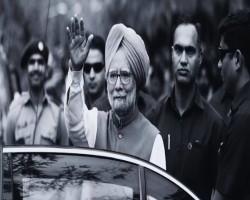Banking Current Affairs
| Deaths |
|---|
|
|
|
Dr Manmohan Singh, the 14th Prime Minister of India who was widely acknowledged as the architect of the country’s economic reforms, passed away in New Delhi. He was 92. Singh was admitted to the emergency department of the All India Institute of Medical Sciences (AIIMS), where he breathed his last, the hospital confirmed.
Early Life and Education: Born on September 26, 1932, in Gah, Punjab Province (now in Pakistan), Singh's family relocated to India during the 1947 partition. He pursued higher education in economics, earning degrees from Panjab University, the University of Cambridge, and a doctorate from the University of Oxford. Prime Ministerial Tenure (2004–2014): Singh served as Prime Minister from May 22, 2004, to May 26, 2014, leading the Congress-led United Progressive Alliance (UPA) government for a historic 3,656 days. His tenure made him the third longest-serving Prime Minister in Indian history, following Jawaharlal Nehru and Indira Gandhi. Challenges and Legacy: Despite his achievements, Singh's administration faced challenges, including allegations of corruption and policy paralysis during his second term, which contributed to the Congress Party's electoral defeat in 2014. Nevertheless, he remained a figure of personal integrity and modesty, respected both domestically and internationally. Illustrious journey in government service: Before his political career, Singh had an illustrious journey in government service. Starting as the Economic Advisor to the Ministry of Foreign Trade in 1971, he quickly rose through the ranks. By 1976, he was Chief Economic Advisor in the Ministry of Finance. Over the years, he held several key roles, including Director of the Reserve Bank of India, Alternate Governor for India at the Asian Development Bank and the International Bank for Reconstruction and Development, and Member (Finance) at the Atomic Energy and Space Commissions. Architect of Economic Reforms: Singh’s legacy will forever be tied to the transformative economic reforms he initiated during his tenure as Finance Minister As Finance Minister from 1991 to 1996 under Prime Minister P.V. Narasimha Rao. These reforms not only liberalized the Indian economy but also paved the way for its global integration. |
| >> More Banking Current Affairs |
